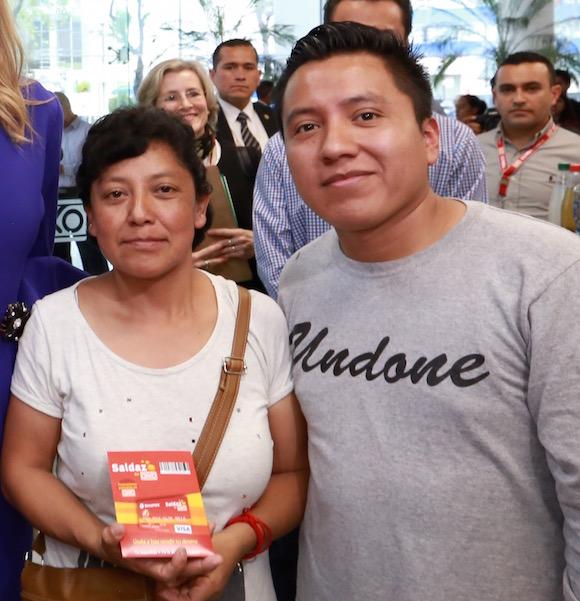
Over the past several years, Mexico has taken steps to modernize its financial system, including improving Internet connectivity, digitizing payments, and working to close the gender gap in access to financial services. Still, only 44 percent of the population has a bank account, and the number of banking agents remains low at just over 41,000. The launch of the country’s national financial inclusion strategy in 2016 was a positive first step to improving access to financial services, but much more remains to be done.
Way Forward
At the invitation of the Mexican government, the Special Advocate and her delegation visited the country in September 2017 to hear updates on the implementation of the national strategy and to discuss obstacles. In meetings with members of the public and private sectors, including President Enrique Peña Nieto, she emphasized several key priorities, including:
Expanding the agent network
Proximity to financial services is key to expanding financial inclusion, particularly for low-income Mexican women, who make 75 percent of their transactions no more than half an hour away from home. To address the lack of bank branches in rural areas, Queen Máxima called for an expansion of the country’s banking agent network to at least 200,000, a five-fold increase that will help low-income individuals save, pay bills, and receive digital payments from government social programs. Specific recommendations included:
- Continue to improve connectivity via the Red Compartida nationwide broadband service project.
- Simplify the process for authorizing agents, and open the system to a wider variety of players (including non-bank financial institutions and fintech companies).
- Expand and standardize the services provided by agents.
- Design financial products with the end customer in mind.
- Reduce the risk of fraud through the use of biometric ID and customer databases.
Small business financing
In a speech at the Third National Financial Inclusion Forum, the Special Advocate noted that 97 percent of the 4.1 million businesses in Mexico are microenterprises and that they generate 75 percent of employment. Yet nearly three-quarters are informal and lack access to credit and other financial services. She urged government officials to centralize credit bureau databases and reporting, and create a moveable collateral registry to improve the ability of small companies to earn credit.
Fintech
The UNSGSA highlighted the significance of a new fintech law that was presented to Congress shortly after her visit. The draft legislation, which included suggestions from the Special Advocate and her partners, would create a more competitive and enabling environment for fintech and could provide an example to other countries in the region. Along with the need for connectivity and anti-fraud efforts, she advocated greater expansion of digital transaction acceptance ecosystems, bringing in more players from outside the current banking sector, including fintech innovators.
Increased collaboration
In her meetings, the Special Advocate also emphasized the need for stronger collaboration among government agencies (including the three major financial regulators) and greater consultation with the private sector and academia. This will be key to implementing the financial inclusion strategy successfully, particularly when it comes to expanding agent networks and digital payments.
Next Steps
As Mexico moves forward with its national strategy and fintech law, the UNSGSA and her partners will continue to provide support on expanding the agent system and promoting collaboration among players. They will also assist authorities as they establish a coordination committee to drive the national strategy.